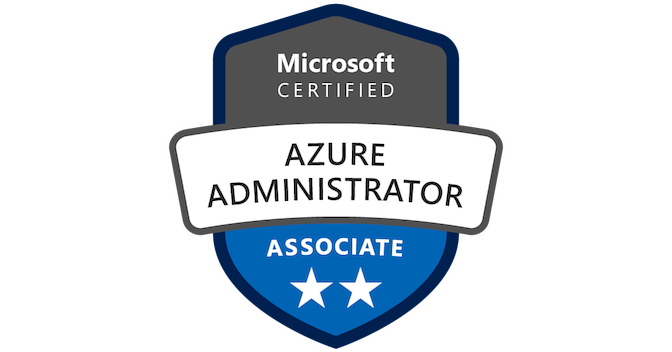AZURE ADMIN

About Course
**Azure Administrator: Managing the Cloud Infrastructure**
**Role Overview:**
Azure Administrators play a crucial role in managing and maintaining Microsoft Azure cloud environments. They are responsible for implementing, monitoring, and maintaining cloud solutions, ensuring they are secure, performant, and cost-effective. Azure Administrators collaborate with various teams to meet organizational goals and maximize the benefits of Azure’s cloud services.
**Key Responsibilities:**
1. **Infrastructure Management:** Provision, manage, and optimize virtual machines, storage, and other Azure resources to support the organization’s workloads and applications.
2. **Resource Deployment:** Deploy and configure Azure services and resources according to the organization’s requirements, including virtual networks, load balancers, and databases.
3. **Identity and Access Management:** Implement and manage identity and access solutions, including Azure Active Directory (Azure AD), role-based access control (RBAC), and multifactor authentication (MFA).
4. **Security and Compliance:** Ensure the security and compliance of Azure resources by implementing security policies, monitoring for threats, and responding to incidents.
5. **Monitoring and Optimization:** Set up monitoring, alerting, and logging for Azure resources, and optimize resource usage to control costs.
6. **Backup and Disaster Recovery:** Develop and maintain backup and disaster recovery solutions to protect data and applications in the cloud.
7. **Automation:** Use Azure Automation and scripting to automate routine administrative tasks, improving efficiency and consistency.
8. **Networking:** Configure and manage Azure networking components, such as virtual networks, subnets, and VPN gateways, to ensure reliable and secure network connectivity.
9. **Performance Tuning:** Monitor resource performance and apply optimization techniques to enhance the performance of Azure solutions.
10. **Collaboration:** Work closely with developers, system administrators, and other teams to support application development and deployment.
11. **Troubleshooting:** Diagnose and resolve issues related to Azure services, network connectivity, and application performance.
12. **Documentation:** Maintain accurate documentation of Azure resources, configurations, and policies.
**Skills and Qualifications:**
– Familiarity with Azure services and infrastructure components.
– Knowledge of virtualization, networking, and storage technologies.
– Understanding of security and compliance principles in cloud environments.
– Proficiency in scripting and automation tools.
– Strong problem-solving and communication skills.
– Azure Administrator certification or relevant experience is a plus.
**Career Opportunities:**
Azure Administrators can pursue various career paths, including:
– Azure Infrastructure Engineer
– Cloud Administrator
– Cloud Operations Specialist
– Azure Solutions Architect
– Cloud Consultant
**Conclusion:**
Azure Administrators are essential to organizations leveraging Microsoft Azure for their cloud infrastructure needs. They ensure the efficient and secure operation of cloud resources, enabling businesses to achieve their goals and stay competitive in today’s digital landscape.
If you have a passion for cloud technology and infrastructure management, a career as an Azure Administrator could be your gateway to a dynamic and rewarding profession.
Student Ratings & Reviews
